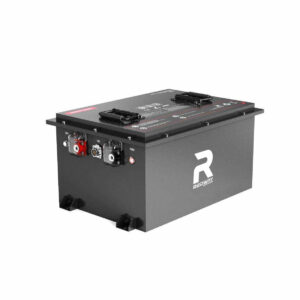What Is the Best Battery for Van Life in 2025
Short Lithium iron phosphate (LiFePO4) batteries are widely considered the best for van life due to their long lifespan, lightweight design, and ability to handle deep discharges. They outperform lead-acid and AGM batteries in energy density and cycle life, making them ideal for powering appliances, solar systems, and off-grid setups sustainably.
How Do Lithium Batteries Outperform Other Types for Van Life?
Lithium batteries, particularly LiFePO4, offer 3-5x more cycles (2,000-5,000) than lead-acid batteries, weigh 50-70% less, and provide consistent power output even at low charge levels. Unlike AGM or flooded batteries, they require no maintenance, charge faster via solar, and can discharge up to 90% without damage, maximizing usable energy for fridges, heaters, and devices.

For van lifers traveling in extreme temperatures, lithium batteries maintain performance where lead-acid alternatives falter. A LiFePO4 battery operates efficiently from -4°F (-20°C) to 140°F (60°C), making it suitable for both Arctic expeditions and desert crossings. Their flat discharge curve ensures devices like inverters and medical equipment receive stable voltage, unlike AGM batteries that experience voltage sag below 50% charge. Modern models also feature Bluetooth monitoring, allowing users to track state-of-charge and health metrics via smartphone apps—a game-changer for remote diagnostics.
What Factors Determine Battery Capacity Needs for Van Conversions?
Calculate energy needs by listing all appliances (e.g., 12V fridge: 60Ah/day; LED lights: 10Ah/day). Multiply daily totals by 1.2 for inefficiencies. A 300Ah LiFePO4 battery typically supports 2-3 days of off-grid use. Consider solar input, alternator charging, and climate—cold reduces lead-acid efficiency, while lithium handles -20°C to 60°C better.
To optimize capacity planning, van dwellers should prioritize high-efficiency appliances. For example, a 12V compressor fridge consuming 1.2kWh daily requires 100Ah from a lithium battery, while a propane heater needs no electricity. Those running induction cooktops (1,500W) should budget 125Ah per 30 minutes of use. Seasonal adjustments matter too—solar harvest in winter decreases by 40-60%, necessitating larger battery banks or supplemental charging via alternators. The table below illustrates common power requirements:
| Appliance | Power Draw | Daily Usage | Ah Consumption |
|---|---|---|---|
| 12V Fridge | 60W | 24 hours | 50Ah |
| LED Lights | 10W | 5 hours | 4.2Ah |
| Laptop Charger | 65W | 3 hours | 16.25Ah |
Why Is Solar Integration Critical for Van Life Battery Systems?
Solar panels (300-600W recommended) recharge batteries sustainably, reducing generator reliance. Lithium batteries pair optimally with solar due to high charge acceptance rates (up to 1C vs 0.2C for AGM). Use MPPT controllers for 20-30% more efficiency than PWM. Example: 400W solar can replenish 200Ah lithium in 5-6 sun hours.
Which Safety Features Are Vital for Van Batteries in Extreme Conditions?
Look for built-in battery management systems (BMS) that prevent overcharge, overheating, and short circuits. Lithium batteries with IP65 rating resist dust/water ingress. Ensure terminals are corrosion-resistant and housed in vented compartments. Thermal sensors and low-temperature cutoffs (-4°F/-20°C) are crucial for winter van dwellers.
How to Budget for Van Life Batteries Without Compromising Quality?
Entry-level 100Ah LiFePO4 batteries start at $600, while premium 300Ah models (Battle Born, Renogy) cost $1,800-$3,000. Lead-acid costs $150-$500 but requires replacement every 2-3 years. Prioritize UL-certified batteries with 10-year warranties. DIY setups save 20-30% but demand electrical expertise.
“Van lifers are switching to modular lithium systems for scalability,” says Jake Morrison, a senior engineer at Nomad Power Systems. “We’re seeing a 300% YoY growth in 12V/24V LiFePO4 setups with Bluetooth monitoring. Future van batteries may integrate hydrogen fuel cells for extended winter range, but for now, lithium-solar hybrids remain king.”
Conclusion
Choosing the best van life battery hinges on balancing energy needs, climate demands, and budget. Lithium iron phosphate technology currently leads in durability and efficiency, with solar compatibility making it a sustainable choice. Always verify certifications, warranty terms, and real-user reviews before investing in your mobile power solution.
FAQs
- Can I use car batteries for van life?
- No—car starter batteries aren’t designed for deep cycling. Use deep-cycle marine/RV batteries instead.
- How long do lithium van batteries last?
- 8-15 years with proper care vs 3-5 years for lead-acid.
- Are lithium batteries safe in van crashes?
- LiFePO4 chemistry is inherently stable, but always install in protected, fire-rated enclosures.
